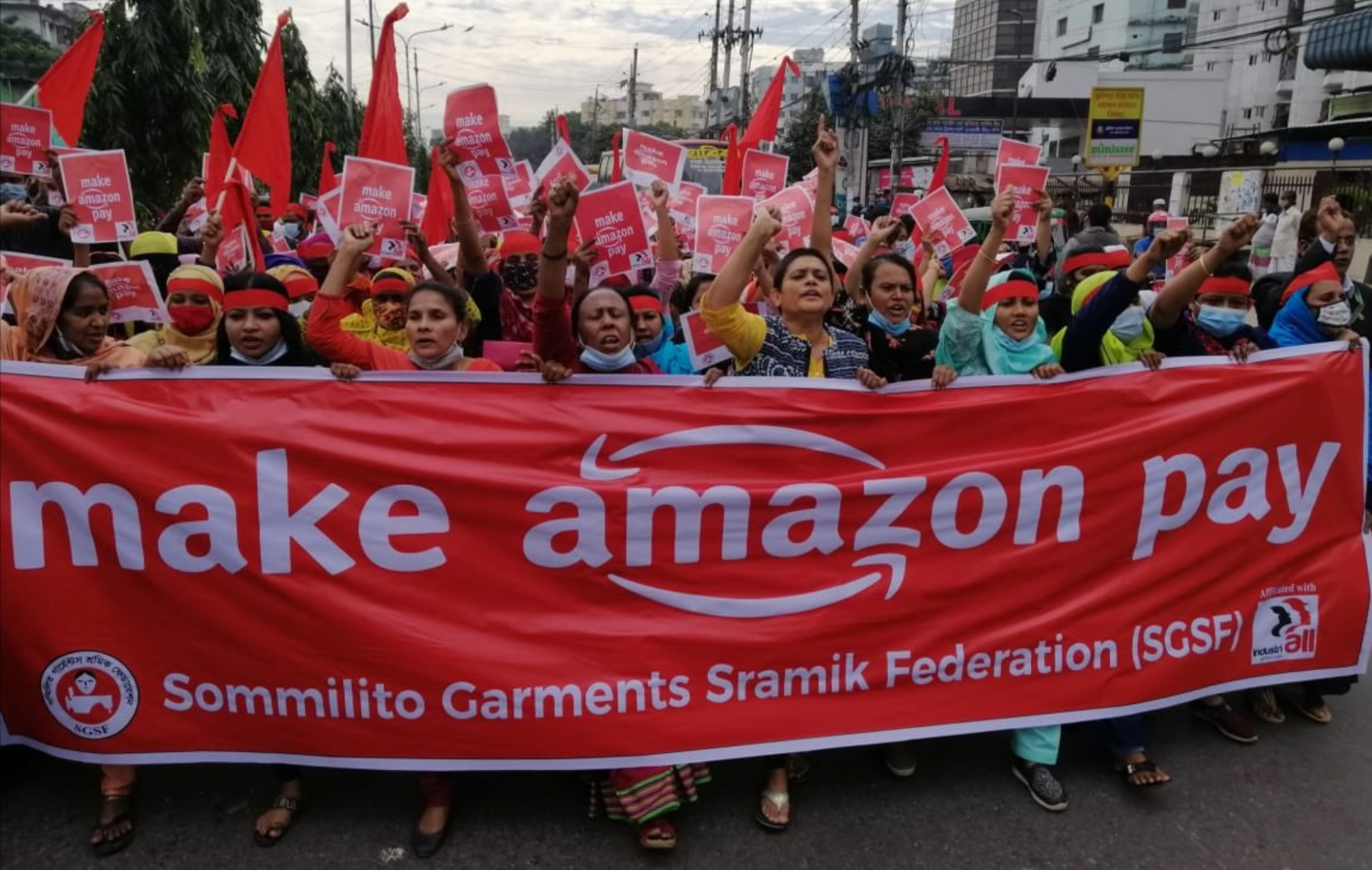WCP: Will 2021 Bring Positive Change for Working-Class People?

Posted in News | Tagged Sarah Attfield, Working-Class Perspectives
As we’ve noted many times, the pandemic has hit working-class people around the world especially hard. But as Sarah Attfield reminds us in Working-Class Perspectives this week, the incredible hardships that workers have faced have also spurred new organizing efforts. These give us reason to hope for a better year ahead.
During 2020, Working-Class Perspectives touched on many COVID-related topics and showed how working-class people around the world were being disproportionately affected for a variety of reasons. Contributors showed how the pandemic brought to light the impacts of our reliance on insecure workers to provide the daily needs of societies. In my April 2020 piece, I pondered whether the growing recognition also in the mainstream media of the importance of working-class occupations would lead to any action on job security, wages, and conditions. I also wondered whether the new understanding of what makes an ‘essential’ worker would change attitudes and end the previous disparagement of so-called ‘low-skilled’ work.
Did anything change? Have working-class lives improved as a result of this new understanding? The short answer is mostly not. While journalists have continued to report on the problems faced by gig-workers and those without sick pay or health insurance, and there has been commentary on the ways that insecure work has contributed to the spread of COVID, most governments have not acknowledged that something needs to change.
True, some governments have provided temporary relief to workers furloughed or sacked due to their workplace closing during lockdowns, but none have even attempted to address the unsustainable systems that prop up economies in many countries around the world. And while unemployment and job insecurity have increased dramatically, few have even noted the massive growth in wealth for a small number of billionaires who have profited from the pandemic.
Many bosses have tried to take advantage of the pandemic in order to cut their operating costs, while governments have tried to weaken existing rights. In Australia for example, the government are proposing new laws that would further entrench insecure work, undermine many of the hard fought-for conditions, and reduce rights to unionise workplaces. Billionaire company owners such as Jeff Bezos of Amazon, have increased their wealth by obscene amounts during COVID, with Bezos raking in an extra $74 billion in 2020 to bring his fortune to a staggering $189 billion. Has this meant that their workers have shared in the profits and been treated well? Of course not. Amazon workers in the US reported COVID-related health and safety breaches in the warehouses even while millions of customers around the world were relying on their labour. These lives of these workers have not been valued by their employer.
The lives of front-line health care workers also have not been valued. They’ve been applauded and praised, but many are not getting the new vaccine because of poor planning and organisation. In the UK, health care workers have pleaded with the government to do more to prevent the increasing spread of the virus, but their calls have been largely ignored. Despite the announcement of a new six-week national lockdown there, many lives have already been lost and the rate of infection is soaring.
Working-class people have been let down by their governments, so they have had to help each other. Some unions have advocated for workers to win paid pandemic leave and to shut down unsafe workplaces. In 2020, hospitality workers in Las Vegas won COVID protections including paid leave for quarantining purposes and extended health benefits. Health care and brewery workers ran successful campaigns to form new unions in their workplaces. Transport union representatives in London were able to negotiate with the UK government to ensure that workers furloughed during the pandemic were still paid their full wages. Spanish unions won improved health and safety provisions for supermarket workers. In South Africa, textile unions were able to secure pay for workers during the country’s pandemic lockdown, and the union representing home-based women workers in Pakistan came to an agreement with their local government to register the workers in ensure them access to social security benefits. Union membership is up worldwide since the start of the pandemic as workers realise that they benefit from collective action and solidarity. These heartening stories point to the importance of unions globally.
What does 2021 have in store for working-class people around the world? Will we see more workers acting collectively to demand better wages and conditions? Can the health care, retail, and other service industry workers so relied on during the pandemic use their newly recognised essential worker status to improve their work lives? Is it possible that bosses will understand that securely employed workers means that society will be better equipped to deal with any future pandemics? Or does this now rest on the policies of new governments to come? Will the Biden administration work to improve wages and conditions for American workers? Can the UK Labour Party offer any hope to working-class Britons who are dealing with the pandemic and the consequences of Brexit? Can union members in Australia mobilise to defeat the proposed changes to industrial relations legislation or will they also need to wait for a change of government? Hopefully some of the inspiring stories from union wins around the world in 2020 can help to motivate workers struggling to organise their workplaces or their communities in 2021.
2020 was a truly terrible year and 2021 hasn’t shown much promise yet! But while it’s easy to fall back into pessimism, there is much hope to be gained from looking at the strength and resilience of working-class people worldwide. Against the odds, workers have fought back and have joined together to force change. Let’s remind ourselves of these wins and celebrate working-class collective strength. After all, as is plainly clear to everyone now, there is no functioning society without working-class people!
Sarah Attfield, University of Technology Sydney
